
What Does the Work of The Future Look Like? With MIT Professor David Autor
Why will tech and automation never lead to the demise of human work? What qualifies as “good” work? What role will robots and AI play in the fast-approaching future? David Autor, MIT professor and co-chair of the MIT Task Force on The Work of The Future, provides answers in this riveting and enlightening conversation.

The Person You Mean To Be and A More Just Future with Social Scientist Dolly Chugh
It’s counter-intuitive but true: letting go of being a good person is key to becoming a better one, and often times it starts with acknowledging our unconscious bias. Social scientist and best-selling author Dolly Chugh offers phenomenal insight that can benefit us both at home and in the workplace.

Is This Time Different? Eight Centuries of Financial Folly with Famed Economist Ken Rogoff
Harvard economics professor and former IMF Chief Economist Ken Rogoff is one of the world’s preeminent economic thinkers. Here he brilliantly dissects today’s U.S. economy and bluntly explains what must happen to tame inflation and sustain growth – and the major role China may play.
He is the co-author of This Time Is Different: Eight Centuries of Financial Folly.

Harvard Business School’s Bill Sahlman: What I’ve Learned Reading 10,000 Business Plans and Investing in Hundreds of Startups
Of the 10,000 business plans Bill Sahlman has read, only 3 companies met their plan. Find out what it takes to succeed. Entrepreneurs have to be really good at running tests and execution trumps idea. Jeff Bezos is the most effective experimentalist in history. Bill Gates did not invent word processing, the spreadsheet, or presentation graphics; rather he took ideas and out executed everyone else.
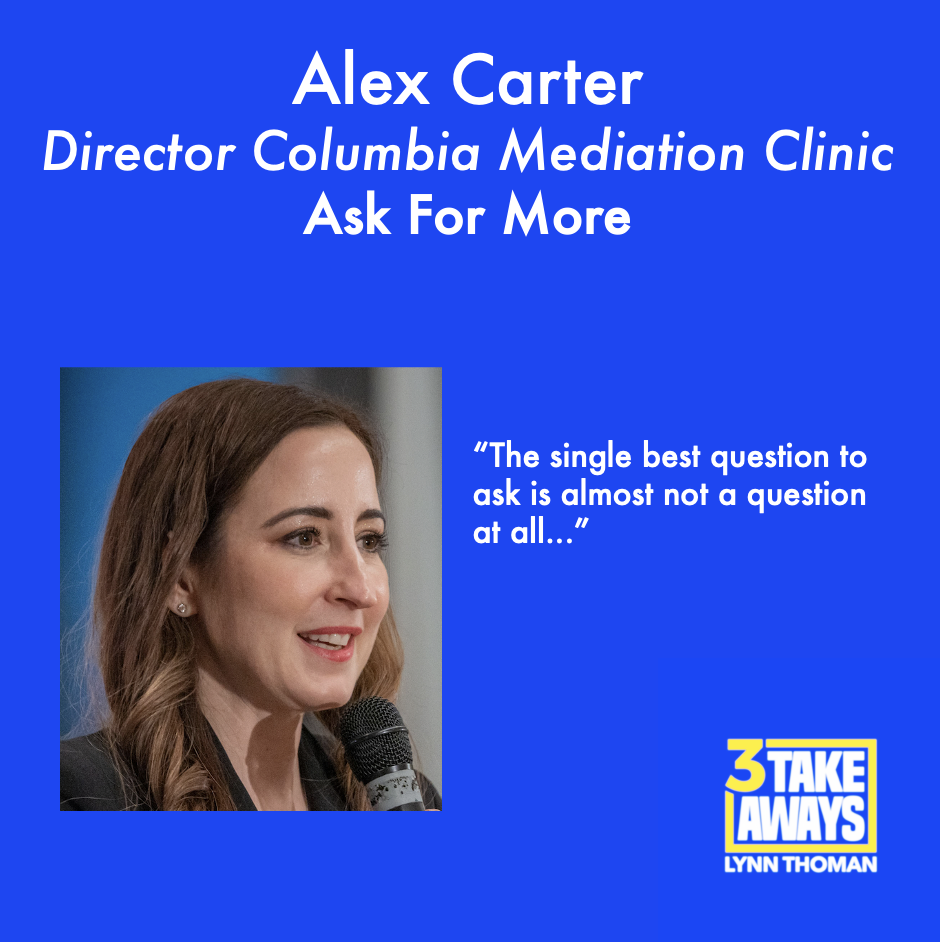
Ask For More: 2 Questions to Negotiate Almost Anything with Columbia Law School Mediation Clinic Director Alex Carter
Did you know that by asking better questions, you get better answers and better results from negotiations, as well as conversations? Learn what the 2 best questions are, and why these 2 questions work almost magically in negotiations as well as in conversations - including those with spouses, children, and colleagues.
Negotiation is not a zero-sum game. It’s an essential skill for your career that can also improve your closest relationships and your everyday life.
Alex Carter is Director of Columbia Law School’s Mediation Clinic. Her Wall Street Journal bestselling book is Ask For More.

Former FCC Chair Tom Wheeler: Our Loss of Privacy Is Worse Than You Think, No Matter What You Think
Your entire life is an open book of information collected by tech companies. According to Tom Wheeler, former head of the Federal Communications Commission, the privacy problem is shockingly large, getting bigger, and has frightening consequences. What, if anything, can be done? Listen and find out.
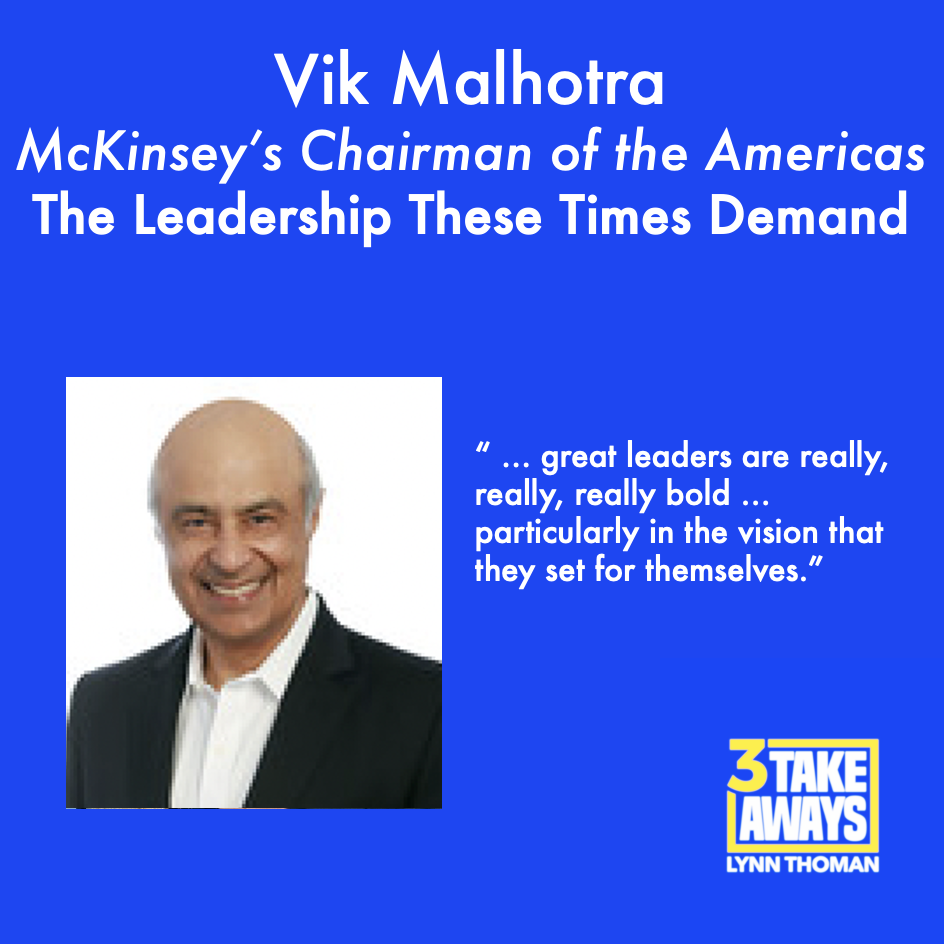
The Leadership These Times Demand – with Vik Malhotra, McKinsey’s Chairman of the Americas
Being a leader of any organization today may be more difficult than ever. What enables some leaders to thrive while others fail? What are some of the qualities and actions vital for success?
Vik Malhotra, McKinsey and Company’s Chairman of the Americas, shares his insights from interviewing and advising today’s elite business leaders. He is a co-author of the New York Times bestseller, CEO Excellence: The Six Mindsets That Distinguish the Best Leaders from the Rest.

Unconscious Bias is Real, So Are the Solutions: Harvard Kennedy School Former Academic Dean Iris Bohnet
How can we reduce or neutralize unconscious bias? It’s a critical question these days – especially with DEI in mind – answered by an expert: Iris Bohnet, the former Academic Dean of the Kennedy School and co-Director of the Women and Public Policy Program. She calls it “unfreezing” our minds, and offers some surprisingly simple solutions.

When Willpower Isn’t Enough: Psychologist Wendy Wood Reveals Keys to Success
The research is in, and it shows that a large part of being successful is understanding how to form the right habits. In fact, forming habits can be more important than willpower and self-control.
Wendy Wood, noted USC Psychology Professor, shares some of her research findings and simple strategies that enable many people to live successful, satisfying lives. She is the author of Good Habits, Bad Habits: The Science of Making Positive Changes That Stick.
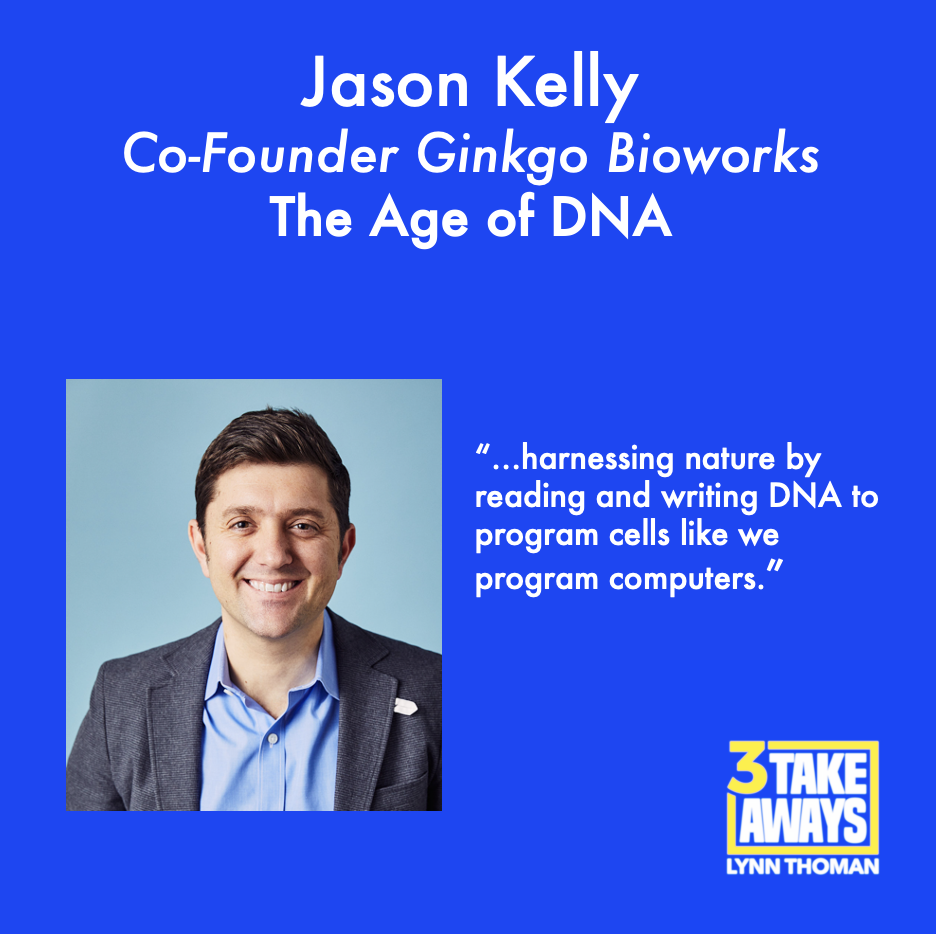
The Age of DNA: Ginkgo Bioworks Co-Founder Jason Kelly
Steve Jobs once said that the biggest innovations in the 21st century would be at the intersection of biology and technology. Nature offers tantalizing examples of the magical properties of biology—self-assembly, self-repair, self-replication and more.
Jason Kelly, co-founder and CEO of Ginkgo Bioworks, shares his dream of harnessing nature by reading and writing DNA to program cells like we program computers.
Ginkgo is a synthetic biology company that programs cells for customers in the pharmaceutical, food, agriculture and energy industries.

Why We Laugh: The Many Shapes and Forms of Laughter with Neuroscientist Sophie Scott
Laughter, it turns out, is not primarily a response to humor. Neuroscientist Sophie Scott CBE shares why we laugh, how it works and the many sins it covers.
We explore how laughter bonds us, where it breaks us, and the ways we use it. We should all bring a greater sense of understanding and intention to our laughter. Sophie Scott is a neuroscientist and professor at UCL whose research focuses on the science of laughter.
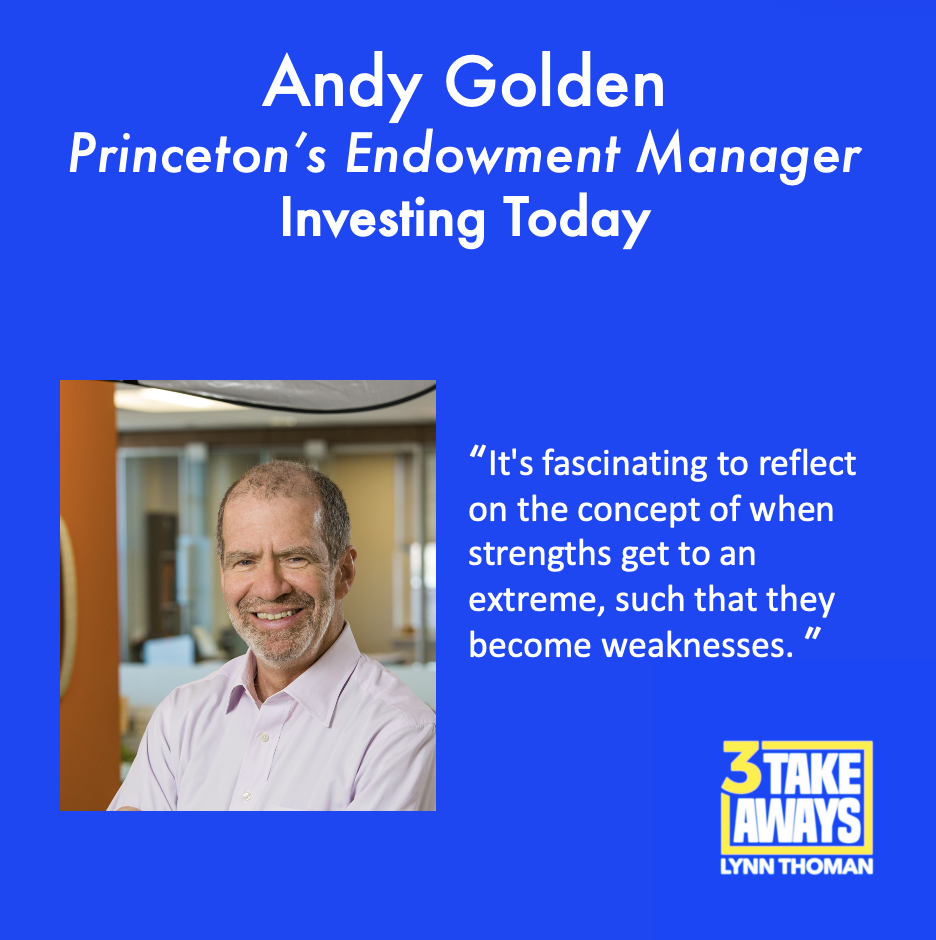
Princeton’s Endowment Manager Andy Golden on Investing Today
The president of Princeton University Investment Company (PRINCO), which manages Princeton’s endowment, talks about investing in today’s world. Andy Golden shares how he selects partners, evaluates investments, and creates a winning environment. PRINCO recently earned nearly a 50% return in a single year.
Andy also explores the differences in long term and short term investing and how a ten year time horizon is short term for endowments. PRINCO is one of the highest performing endowments in the world.
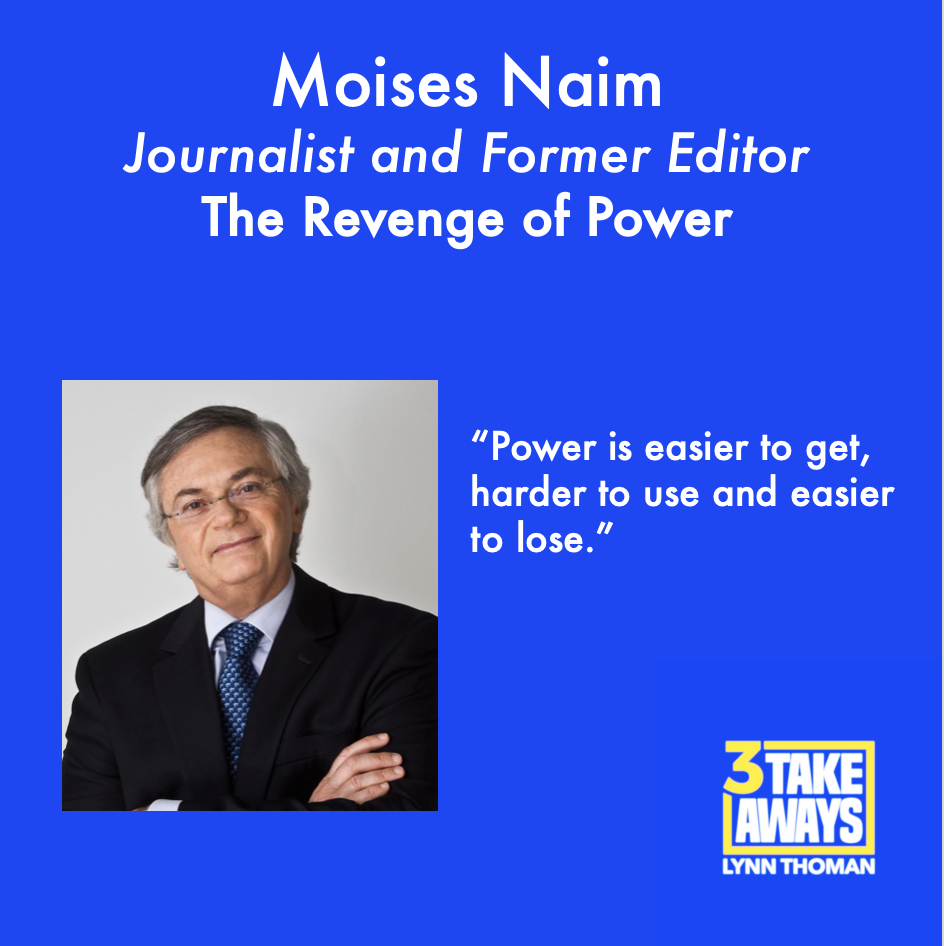
The Revenge of Power: How Power is Shifting in the 21st Century with Moises Naim
Power is easier to get, harder to use and easier to lose. Moises Naim explores how power is changing across all sectors of society. Power has shifted from country leaders to public squares, large companies to start-ups, and large armies to insurgents. Being in charge isn’t what it used to be! But at the same time, power is also concentrating in some sectors. Autocrats are reinventing politics and gaining power using 21st century tools - populism, polarization and post-truths - and undermining democracies around the world.
Moises Naim is a Venezuelan journalist and former editor-in-chief of Foreign Policy magazine. He was Minister of Trade and Industry for Venezuela, director of Venezuela’s Central Bank, and executive director of the World Bank. He is the author of The End of Power and The Revenge of Power.
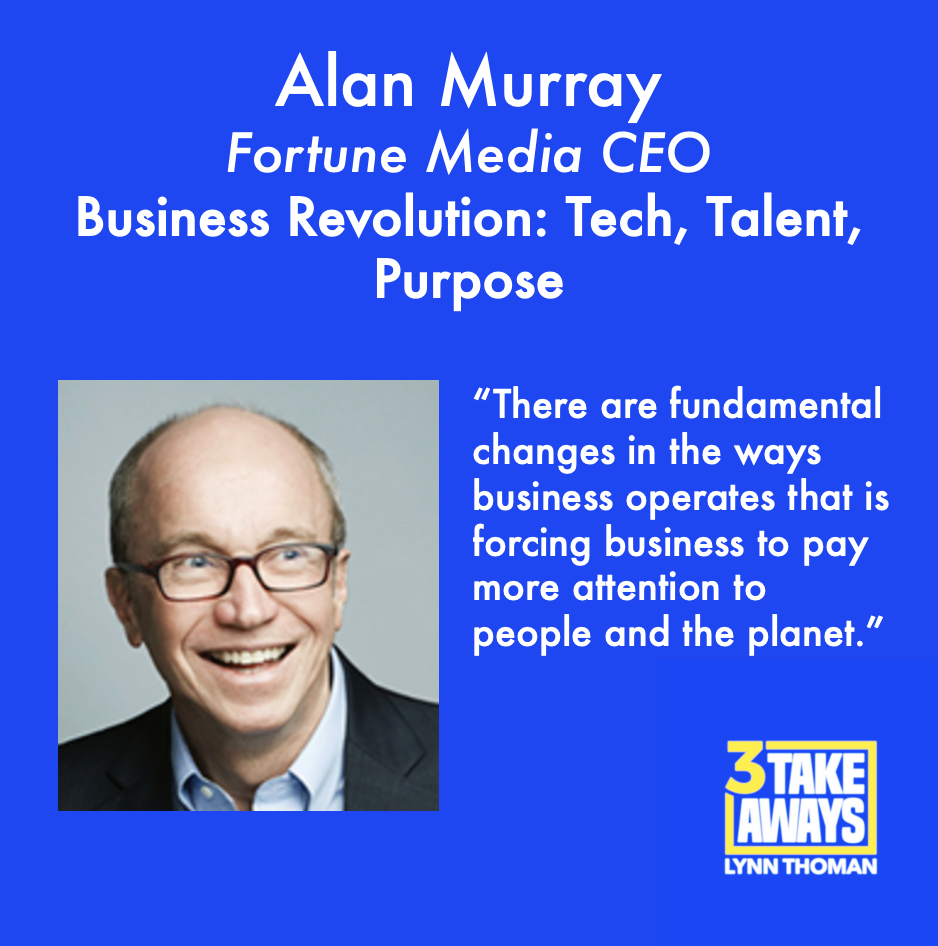
Business Revolution: Tech, Talent, Purpose with Fortune Media CEO Alan Murray
Fortune Media CEO Alan Murray shares the dramatic changes in business today due to the tech revolution, which is disrupting so many businesses, and the purpose revolution which is causing companies to re-think what they should be doing.
He believes that fundamental changes in the ways businesses operate today are forcing them to pay more attention to people and the planet.
It used to be that 80% of the value of the Fortune 500 came from physical assets but now over 85% of the value is intangible assets including intellectual property, software, brand value and the human emotional connection that comes from brand value. Since intangibles, which is where the value lies today, are things that are much more closely tied to people - it's human ingenuity that creates the intellectual property, it's human emotion that creates the brand value and the brand connection - business leaders are paying much more attention to people. Alan shares how that is changing the purpose of corporations and the role of the CEO today.
He also talks about how business has changed due to the pandemic, remote work, Black Lives Matter, rising inequality, global warming and the Ukraine Russia war.
Unless businesses are responsive to their employees, their customers and their communities, Alan believes they will lose. The biggest changes, he says, are yet to come.
His new book is Tomorrow’s Capitalist.
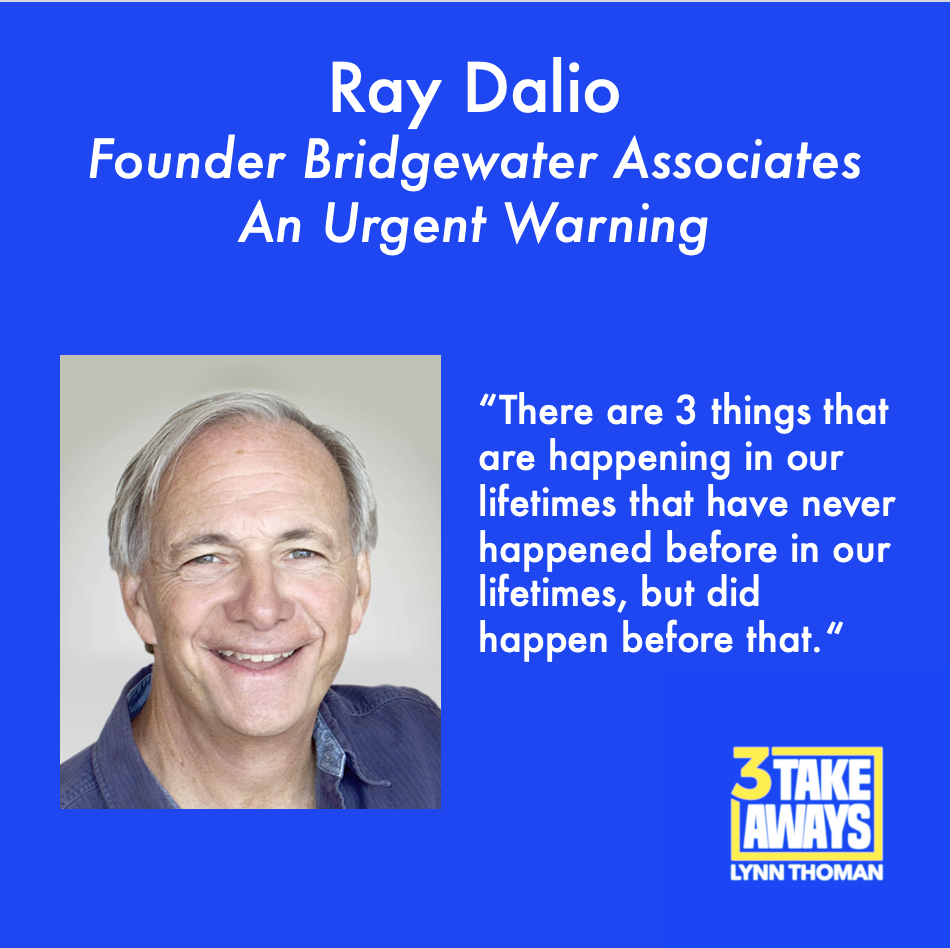
An Urgent Warning on the Times Ahead with the Founder of the World's Largest Hedge Fund: Ray Dalio
Legendary investor Ray Dalio, who predicted the 2008 financial crisis, shares a similar urgent warning about what he sees ahead. He believes the times ahead will be radically different from what everyone today has experienced in their lifetimes, and he wants people to be prepared. Bill Gates said, “…super-provocative, super-important… A lot of facts line-up to create a scary picture that’s hard to refute.”
Based on his study of the rise and fall of superpowers and history’s most turbulent periods, Ray is issuing a warning about the confluence of three major events that last happened between 1930 and 1945.
He talks about debt creation, printing money, inflation, wealth disparity, populism and the rise of a great power to challenge the existing world order.
Ray Dalio founded and built Bridgewater Associates into the largest hedge fund in the world and shares how to protect assets during the tempestuous and inflationary period ahead.
His new book is Principles for Dealing with the Changing World Order: Why Nations Succeed and Fail.
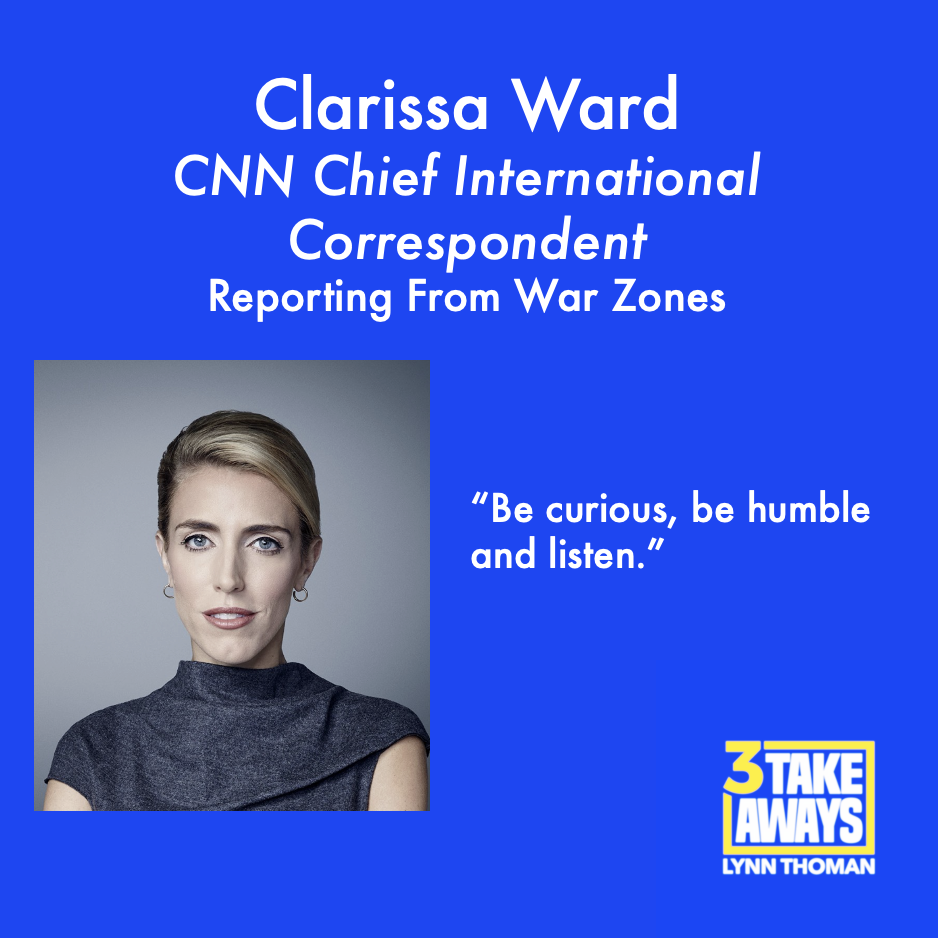
Reporting from War Zones with CNN Chief International Correspondent Clarissa Ward: How What's Reported Differs From the Situation On the Ground
This week we talk with Clarissa Ward, CNN’s Chief International Correspondent, who has been reporting from Ukraine, and who has covered hot zones and wars in Lebanon, Iraq, Egypt, Syria and Afghanistan and been based in Baghdad, Beirut, Beijing and Moscow. She shares the remaking of the world from the front lines and how the situation on the ground differs from what’s reported.
She provides a deeply personal and inside scoop on the news. Find out why TV doesn’t provide a full picture of reality and what she’s learned from her extensive time covering conflicts and wars.
She also talks about a reporter’s responsibility in being a vessel, the mental health toll of reporting from war zones and the surprising advantages to being a woman reporting from the Middle East.
Clarissa is known for her courage, compassion and riveting reporting. She speaks seven languages and has received multiple awards, including Peabody, Murrow and nine Emmy awards.
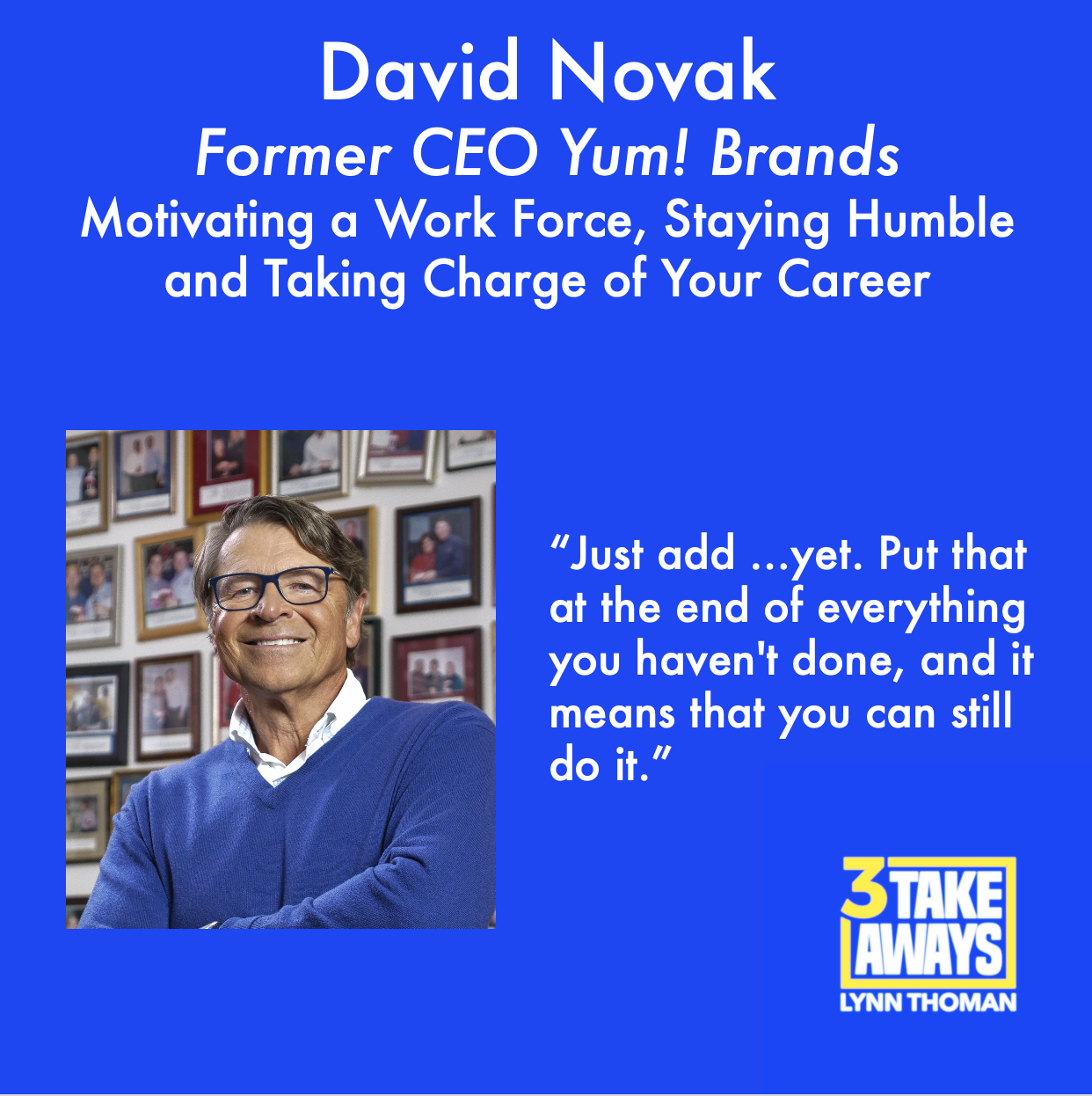
David Novak, Former CEO OF Yum! Brands on Motivating a Work Force, Staying Humble and Taking Charge of Your Career
From humble beginnings growing up as a trailer park nomad, David rose to be the CEO of Yum! Brands (Pizza Hut, Taco Bell and KFC) where his successful techniques as a leader helped double the number of restaurants and increased market capitalization over 8 times. He has been recognized as one of the best performing CEO’s by Barron’s, Fortune and Harvard Business Review.
This week we talked about his people first approach, the essential traits leaders need, the importance of mindset and why purposeful recognition is the strongest motivational tool for leaders in any field. He explains how sometimes we have to say no in order to get what we want, as well as describes why people cried when he gifted them a rubber chicken!
David continues to campaign to create more leaders by creating the student leadership program Lead4Change.
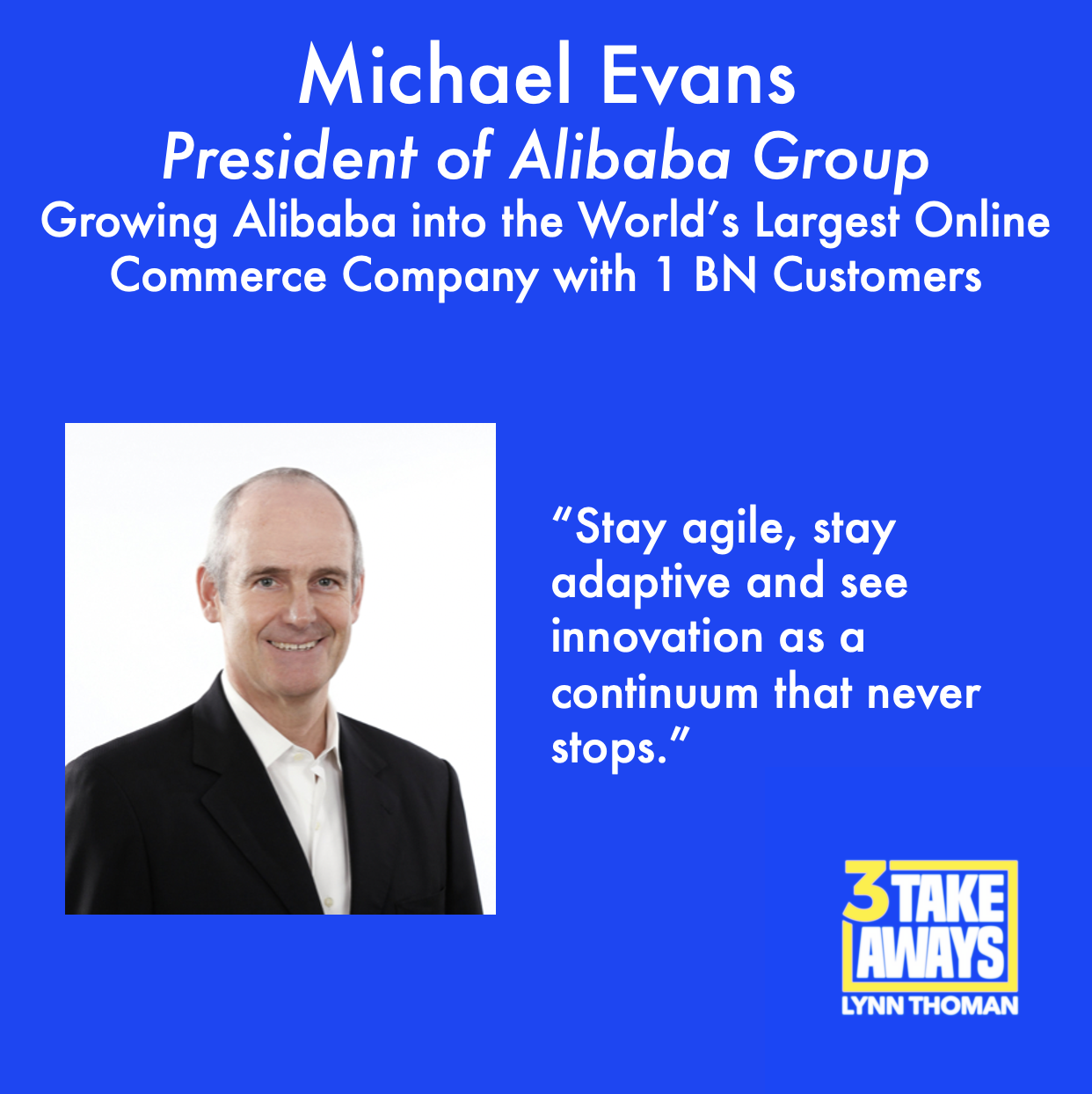
Growing Alibaba into the World's Largest Online Commerce Company with 1 BN Customers: Alibaba Group President Michael Evans
Sometimes, and mostly outside of China, Alibaba is referred to as the Chinese Amazon, but in reality, it’s very different and much larger.
Alibaba Group president Michael Evans shares how Alibaba grew to become the world’s largest online commerce company serving nearly 1 billion customers each month, how it’s different than its Western counterparts, and what international companies need to know in order to succeed in the China consumer market.
Michael also shares how he sees the future of retail and how Alibaba creates new businesses that are innovative and different from what you see elsewhere. He also explains how Alibaba is using its platform to help its merchants understand consumer trends, manufacture more efficiently and make the future greener.
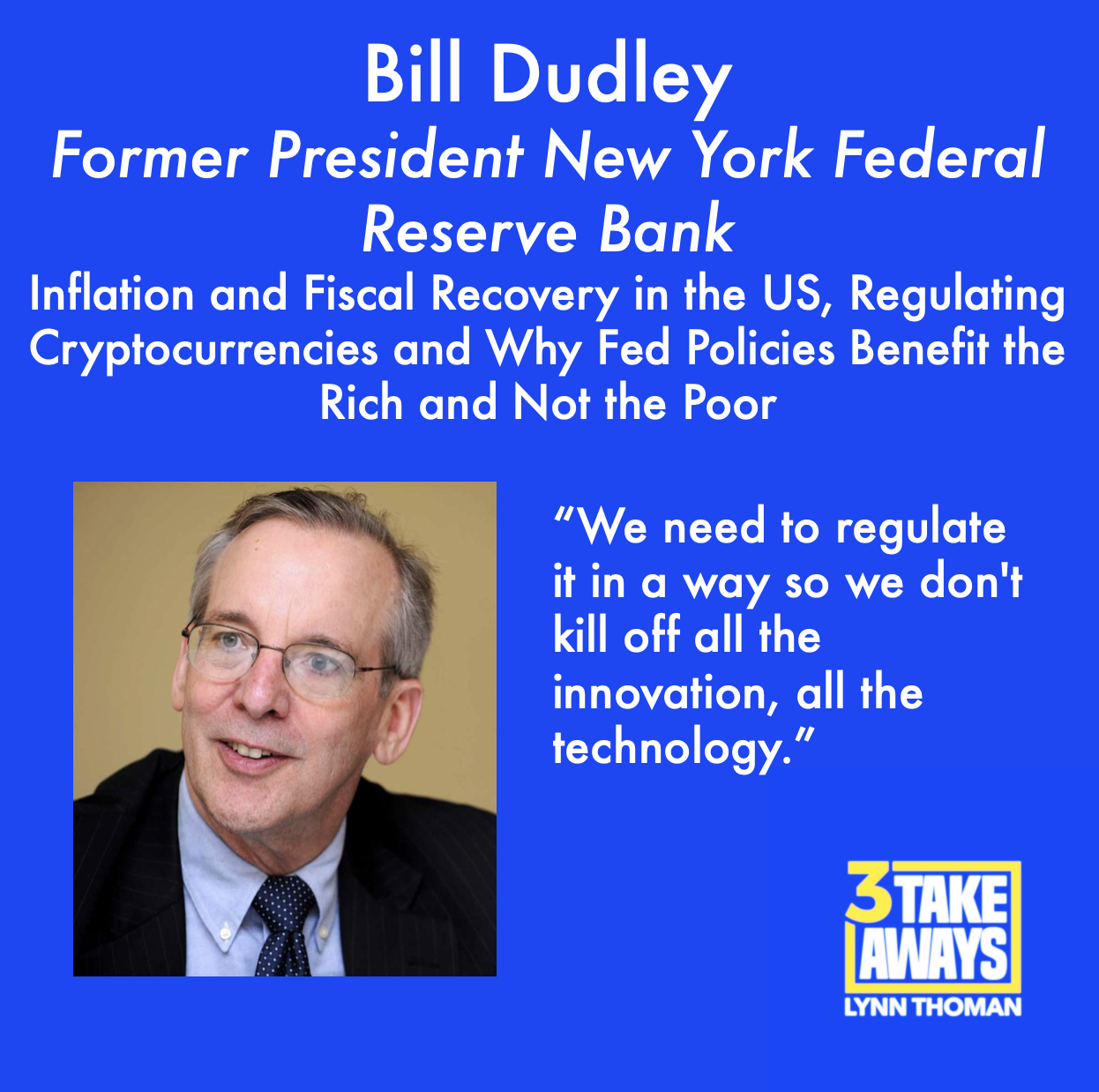
Former CEO of New York Federal Reserve Bank Bill Dudley on Inflation and Fiscal Recovery in the US, Regulating Cryptocurrencies and Why Current Fed Policies Benefit the Rich and Not the Poor
We talk with Bill Dudley, the former President and CEO of the New York Federal Reserve Bank, about the US economy - where it is headed and what could happen, how the pandemic affected it, why Fed policies benefit the wealthy and what $5 trillion in government spending means for GDP. He also shares his thoughts about cryptocurrencies and how stricter regulation could bring wider adoption. Does he think the Fed is Too Hawkish, too Dovish or in “Alice In Wonderland”?
Bill Dudley is an American economist - who joined the Federal Reserve on the eve of the 2008 financial crisis after a 20 year career at Goldman Sachs.
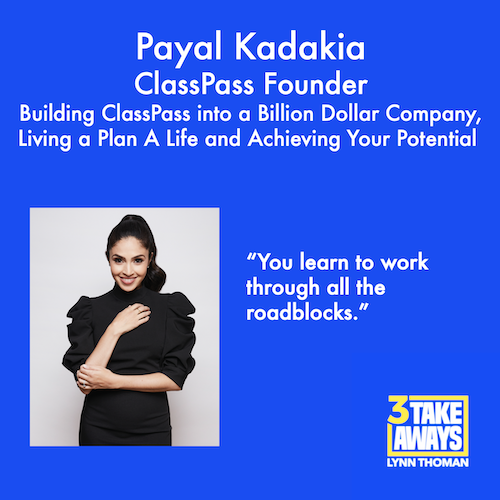
Founder Payal Kadakia on Building ClassPass into a Billion Dollar Company, Living a Plan A Life and Achieving Your Potential
Learn how Payal Kadakia built a start up into a billion dollar unicorn in her 20’s, despite many setbacks, and what her most important decisions were. Payal shares what living a Plan A life means, how the moment that enabled her to launch her life was one of the lowest moments of her career, and what leadership characteristics enabled her to succeed.
Payal is the founder of ClassPass, the world’s largest health club aggregator with over 30,000 health clubs in 28 countries. ClassPass offers a revolutionary membership that lets members use health clubs and book unlimited fitness classes for a subscription fee.
Payal is also the author of LifePass: Drop Your Limits, Rise to Your Potential: A Groundbreaking Approach to Goal Setting.
